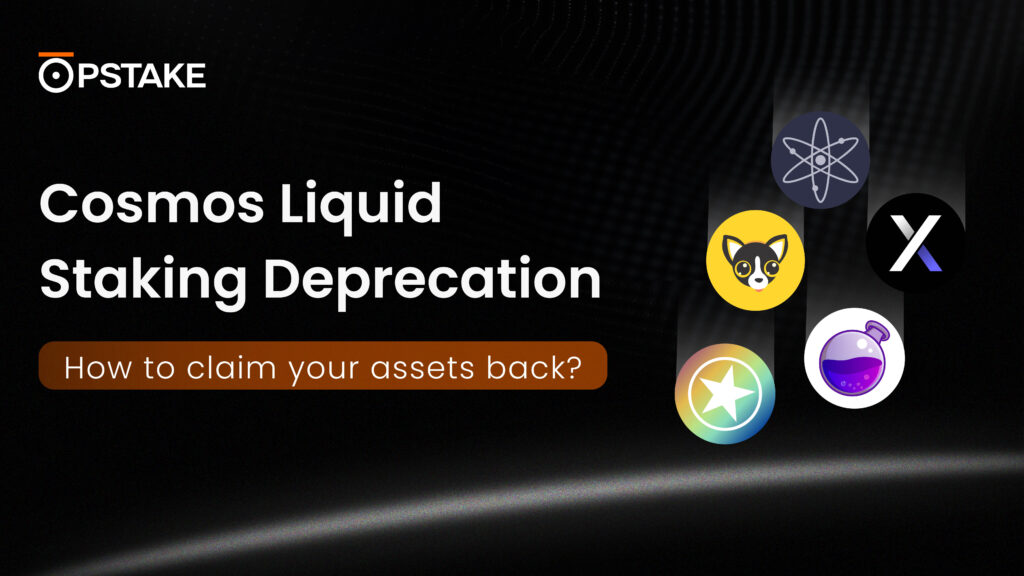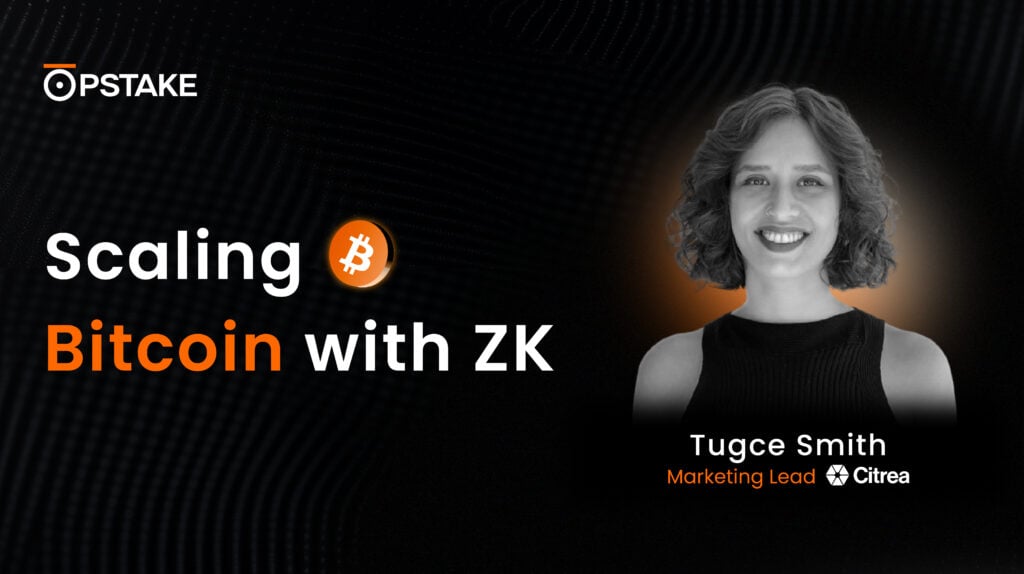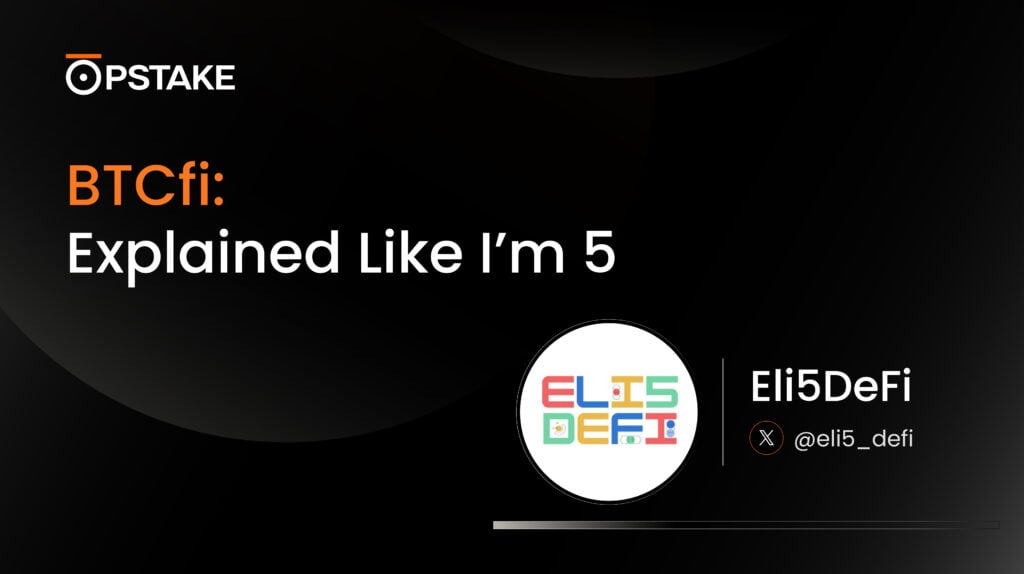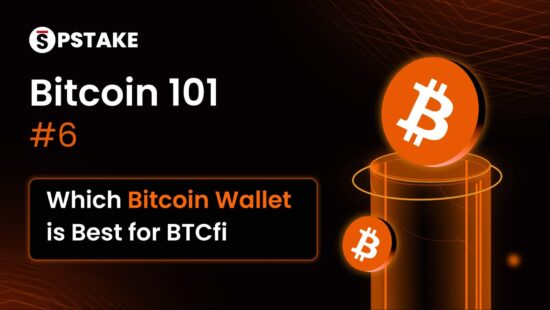With pStake Finance moving into the heart of the Bitcoin ecosystem on its mission to provide native Bitcoin yields to holders, we’ve crafted this Bitcoin 101 series to help newcomers understand the number-one-ranked cryptocurrency slightly better.
With thousands of articles relating to Bitcoin available online, we hope our series can condense the complex information, demystify the confusing jargon, and provide an insightful overview of the granddaddy of the crypto world.
So far, we’ve covered the following in the Bitcoin 101 Series:
- Introducing the basics of Bitcoin.
- Breaking down Proof-of-Work (PoW) algorithms.
- Breaking down Blockchain technology.
- Overviewing everything about Bitcoin Layer-2s.
- Introducing Bitcoin Liquid Staking.
Today, we would like to cover the best wallets for the BTCfi economy.
As BTCfi emerges as a significant sector of DeFi, BTC holders are realizing the importance of finding the best wallets. These wallets not only keep their assets secure but also enable them to seamlessly participate in Bitcoin’s evolving decentralized finance trend.
BTCfi is a new and exciting segment of Bitcoin that’s revolutionizing traditional DeFi utilities directly on the Bitcoin network through layer-2 networks. It’s the talk of the town, and for good reason.
However, here’s the catch-most traditional BTC wallets aren’t up to speed with BTCfi. As popular BTCfi protocols like Ordinals and Runes gain traction, BTC holders are now on the hunt for the best wallets to store their BTC and BTCfi assets.
Let’s explore the top 3 BTCfi compatible wallets on the market to prepare you for the new generation of BTC yield.
What is a Bitcoin Wallet?
A Bitcoin wallet lets users send, receive, and view their BTC holdings. Everybody participating in the Bitcoin world needs a wallet to hold their private keys and access their BTC.
The best definition of a Bitcoin wallet is as follows:
A Bitcoin wallet is a physical device or program that stores your cryptocurrency’s private keys.
Now, you know how we like to do things for this Bitcoin 101 series. So, let’s break this down.
“A Bitcoin wallet is a physical device or program…”
Bitcoin wallets can be external hardware wallets, physical devices you connect to your computer to hold your assets, or software wallets that run on your mobile device or computer.
Both types of wallets offer advantages. For example, software wallets make it incredibly easy to initiate transactions. However, it is universally accepted that hardware wallets provide the highest form of safety but have hurdles to overcome in usability.
“that stores your cryptocurrency’s private keys and allows you to access your coins.”
Private keys are the magic that makes Bitcoin function. They are pieces of secure code that allow users to prove ownership of their BTC holdings and sign transactions.
You see, coins aren’t actually moved around from wallet to wallet. Instead, the blockchain ledger (look at this article to refresh your knowledge on Blockchain) tracks all cryptocurrency transactions to monitor which wallet owns what BTC.
Every wallet contains an address (a public key) and the private key required to sign a cryptocurrency transaction. When somebody sends BTC to your public address, you must have the corresponding private key to access the BTC allocated to that address. Anybody with private keys can control the coins associated with that address.
Why Do You Need a Bitcoin Wallet?
Once you purchase a cryptocurrency, you need somewhere to hold it and keep it safe.
You could keep your assets in the exchange where you purchased BTC; however, history has told us this is a very bad move. In addition to exposure to potential hacks and operational risks, you don’t own the BTC held on an exchange—the exchange does.
Instead, hardware wallets are often cited as the best way to securely store your BTC over long periods, with non-custodial software wallets used to keep short-term holdings.
The best way to visualize this concept is through traditional finance. For example, you hold the majority of your wealth in a bank—this is the hardware wallet. However, you also keep cash in your pocket for everyday purchases—this is your software wallet.
What is BTCFi, and Which BTC Wallet is Best for this emerging narrative?
Now that the basics are out of the way, let’s explore why you must carefully select a compatible wallet for your BTC holdings when participating in BTCfi.
BTCfi, or Bitcoin DeFi, is an emerging sector that has introduced more decentralized finance opportunities to the Bitcoin network.
The new sector emerged from increased programmability on the Bitcoin blockchain, introducing DeFi capabilities to the Bitcoin network.
With a $1.3 trillion market cap, Bitcoin has been stuck as a store of value since its inception. However, Oridnals, Runes, and Babylon innovations are introducing DeFi into the world’s largest Blockchain – allowing for a new variety of yield-generating and NFT opportunities directly on the BTC network itself.
For example, Oridnals is a new numbering scheme inscribed onto Satoshis (the smallest unit of BTC) through the Oridnals protocol. Each Satoshi is assigned a sequence of ordinal numbers to define the order in which it was mined, allowing identification and tracking of each unique Sat. Users can inscribe data onto these specific Sats to create Ordinal inscriptions, bringing life to NFTs and other DeFi applications on Bitcoin.
On the other hand, Babylon is an innovative security-sharing initiative that allows users to share the mammoth PoW Bitcoin security with other PoS chains to earn rewards. Babylon is single-handedly turning BTC into a yield-generating asset by making it a slashable asset that can provide economic security to PoS chains.
Since its introduction, the TVL of BTCfi has soared above $1 billion:

BTCfi unlocks the tremendous value of Bitcoin’s market cap and introduces yield-generating opportunities for BTC holders.
However, the traditional wallets that are built for BTC aren’t all compatible with the emerging BTCfi world. Not all major wallets allow users to hold their BTC NFTs, BRC-20 tokens, or other emerging BTCfi utilities.
Fortunately, platforms like Babylon are integrating all of the BTCfi compatible wallets into their ecosystem.
Let’s take a look at the top wallets that are compatible with BTCfi:
OKX, Binance Web3 Wallet, Bitget, Tomo, Ledger, Keystone Hardware, 1key, imToken, Trust Wallet
- OKX

OKX Wallet has pioneered a multi-chain wallet that fully supports Bitcoin originals. The wallet has integrated the Bitcoin taproot upgrade, allowing you to view and transfer your orders easily.
The OKX wallet specifically allows users to mint and purchase BRC-20 tokens, with the open-sourced BRC20-S standard also incorporated. Due to its versatility, OKX is one of the stand-out options for the bubbling BTCfi sector, empowering BTC holders and giving them full control over their BTCfi assets.
Furthermore, OKX takes security seriously and has conducted audits of its wallet through SlowMist.
Best of all, the OKX wallet is cross-chain interoperable across 50 chains, meaning you won’t need other wallets across different Web3 ecosystems.
- Binance Web3 Wallet

The flagship Web3 wallet from Binance provides a secure and straightforward journey into the world of Web3.
The Binance Web3 Wallet is connected to the world’s largest exchange, allowing users to trade their favorite tokens and access multiple blockchains.
It also allows users to explore the best apps from one location.
Best of all, Binance Web3 Wallet also allows users to transfer funds between the exchange and the wallet with one single tap, providing a seamless route across CeFi, DeFi, and Web3.
The self-custody wallet will be compatible with Babylon’s protocol, making it a great BTCfi wallet.
3. Bitget Wallet

Bitget Wallet is another Web3 wallet from a top exchange, providing faster trading and better assets to swap.
The wallet features over 250,000 cryptocurrencies across 100+ blockchain ecosystems, and it facilitates swaps worth over $8 billion.
Bitget Wallet boasts 20 million users across 168+ countries, making it the perfect Web3 wallet to use in BTCfi, regardless of location.
- Tomo

Tomo is described as an all-in-one Web3 social wallet that lets users connect, create, and earn.
Users can easily log into the wallet using their social media accounts, manage assets, send crypto, chat, post content, and make friends.
Backed by heavyweights like Polychain Capital, Nomad Capital, and OKX Ventures, Tomo is featured on this list as it has a particular focus on bringing Bitcoin into Ethereum L2, Solana, and Cosmos ecosystems, making it an ideal BTCfi wallet for the future.
- Ledger
Ledger wallet is one of the most popular hardware wallets in the industry.
With a range to choose from, Ledger provides the perfect solution to all types of users across multiple ecosystems and blockchains.
Alongside securely storing assets, the Ledger Live application helps users sake crypto, explore the dApp ecosystem, and swap tokens.
Users can easily connect their Ledger devices to Leather Wallet to manage their BTCfi assets, such as Bitcoin Runes, ordinals, and BRC20 tokens.
- Keystone Wallet

The Keystone Wallet is described as the best wallet for securing crypto assets offline.
The platform offers seamless compatibility with multiple leading wallets, allowing users to connect their assets to multiple applications in the crypto landscape.
The wallet has a touchscreen display and is fully open-sourced, making it one of the most trusted hardware wallets in the industry.
Users can connect their Keystone Wallet with OKX Wallet and MagicEden to manage their BTCfi assets.
- OneKey Wallet

OneKey Wallet is an open-source crypto wallet trusted by mullions. It provides one of the easiest solutions for tracking crypto assets and NFTs.
The platform offers both software and hardware wallets, which are designed to keep things simple.
Users can create a Bitcoin Taproot address to send and receive NFTs on Bitcoin, making it the perfect BTCfi companion.
- imToken

imToken Wallet provides equal access to the tokenized world through a digital wallet trusted by millions of users.
The platform has multiple ecosystems, allowing users to easily explore the DeFi and BTCfi landscape from one platform.
The wallet has over 15 million customers and eight years of operational experience, making it one of the most trusted wallets in the industry.
- Trust Wallet

Trust Wallet is a powerful Web3 wallet that lets users unlock the power of crypto assets and explore the world of Web3 dApps.
With well over 100 million users, Trust Wallet has earned the confidence of users due to its independent audits.
The platform is a self-custody, multi-chain platform, allowing users to manage all their assets from one wallet.
Best of all, Trust Wallet is always ahead of the curve by keeping up-to-date with the latest crypto tech. The platform has already integrated ordinals and BRC-20 tokens into the wallet, making it one of the best options in the BTCfi world.
- The Ordinals Wallet

The Ordinals Wallet is a Bitcoin wallet specifically designed to hold, store, and transfer Ordinals. The wallet also allows users to inscribe their own Ordinals and buy and sell BTCfi assets within the wallet.
Launched in February 2023, the Ordinals Wallet has quickly become one of the most popular wallets for BTCfi. Its very user-friendly interface makes it seamless for new users to explore BTCfi, ensuring that BTC holders feel comfortable and at ease when using it.
With over $80 million in trading volume across 470,000 wallets, Ordinals Wallet is certainly one of the best options for storing BTCfi assets.
About pSTAKE Finance:

pSTAKE Finance is a Bitcoin Yield and Liquid Staking protocol, backed by Binance Labs.
With pSTAKE Finance, users can liquid stake BTC to get rewards from Babylon’s Trustless BTC staking for securing other app chains while maintaining their liquidity, powered by institutional custody providers like Cobo.
Accessing Bitcoin yields should not be complex, risky, or unsafe. With four years of liquid staking expertise and expert-curated yield strategies, pSTAKE Finance helps individuals and institutions put their BTC to work in BTCfi.
pSTAKE Finance has partnered with leading blockchain security firms, such as Halborn, Hexens, Oak Security, Immunefi, Forta, and more, to offer a secure liquid staking product suite.
PSTAKE is the governance and incentivization token of the pSTAKE Finance protocol. It has some of the most prominent investors, including Binance Labs, DeFiance Capital, Spartan Group, Coinbase Ventures, and Kraken Ventures.










